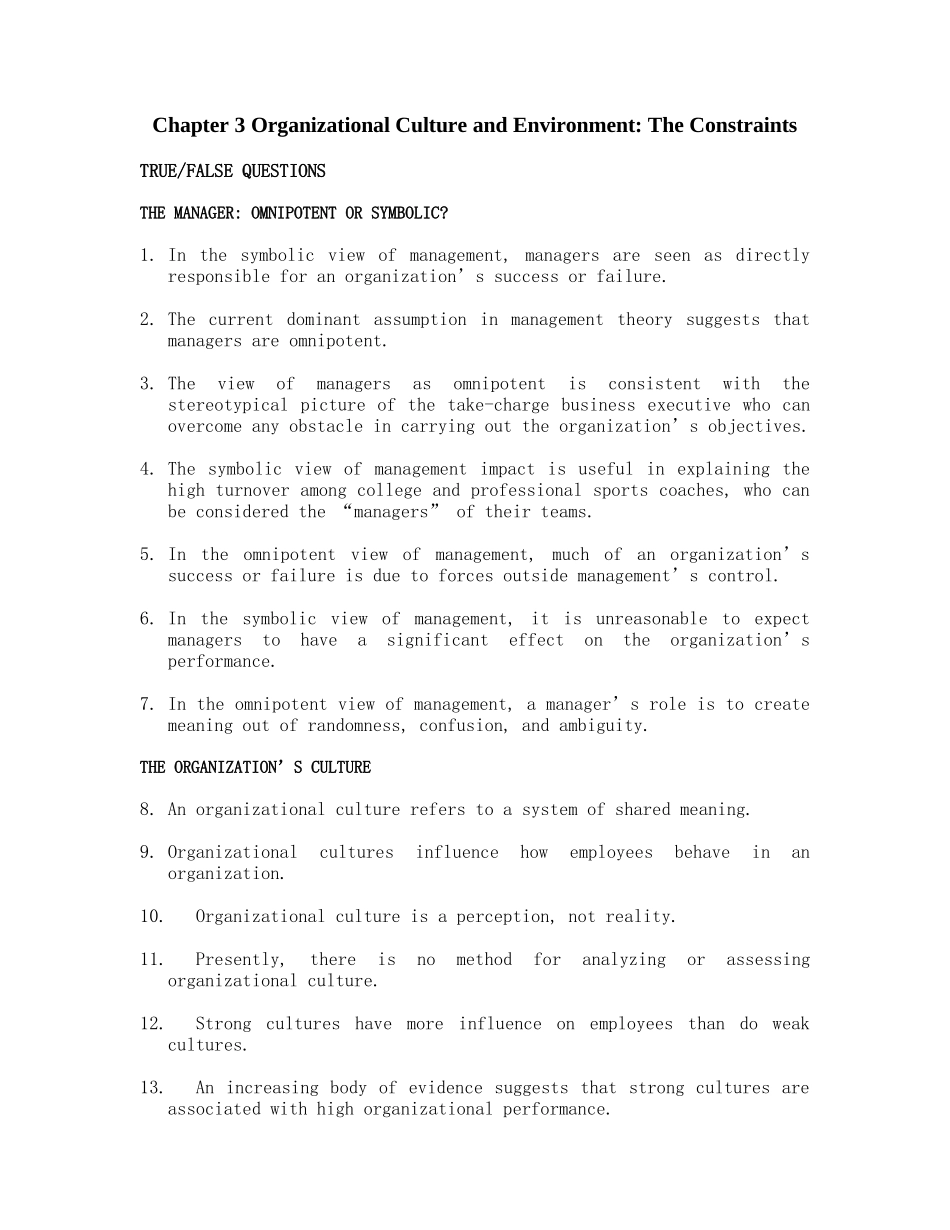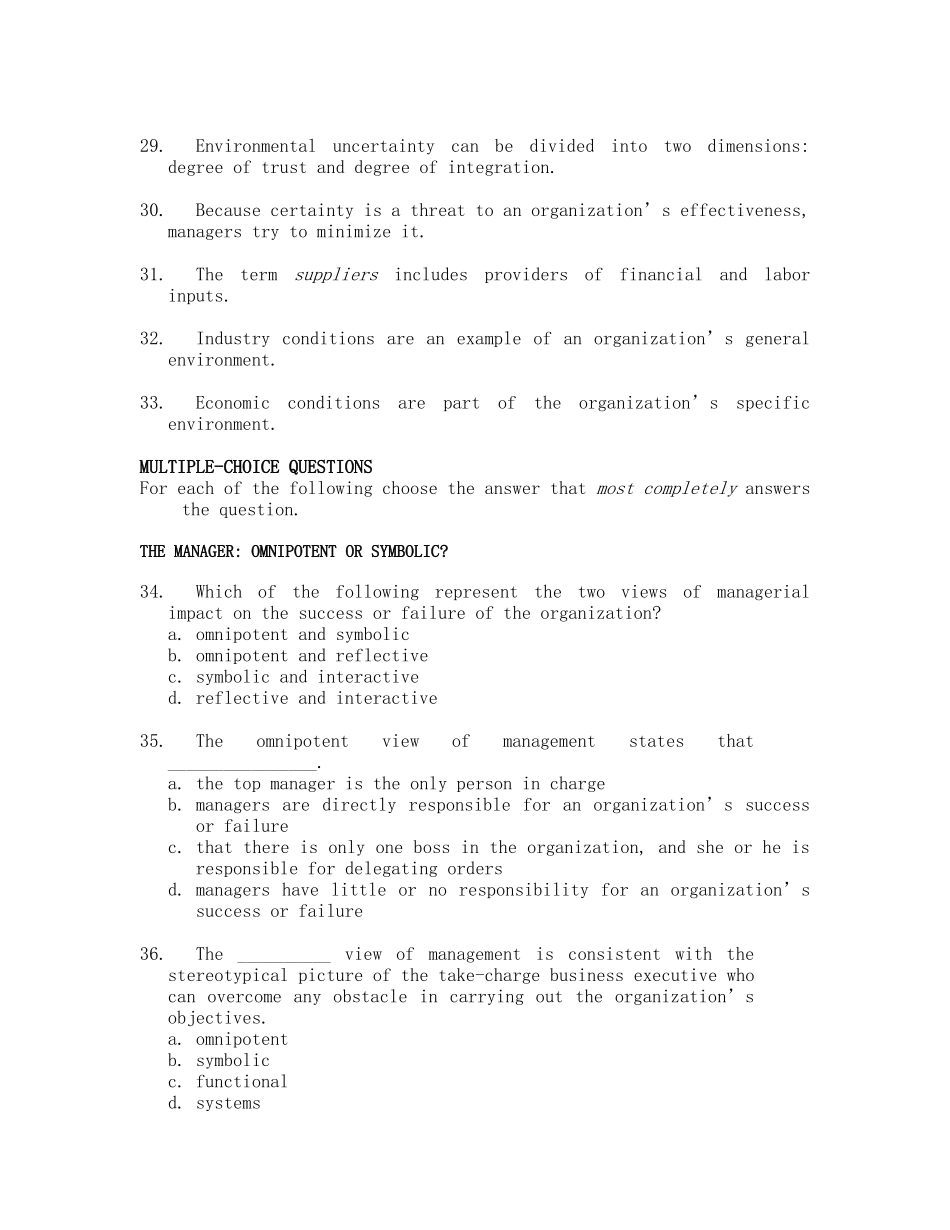Chapter 3 Organizational Culture and Environment: The ConstraintsTRUE/FALSE QUESTIONSTHE MANAGER: OMNIPOTENT OR SYMBOLIC?1. In the symbolic view of management, managers are seen as directly responsible for an organization’s success or failure.2. The current dominant assumption in management theory suggests that managers are omnipotent.3. The view of managers as omnipotent is consistent with the stereotypical picture of the take-charge business executive who can overcome any obstacle in carrying out the organization’s objectives.4. The symbolic view of management impact is useful in explaining the high turnover among college and professional sports coaches, who can be considered the “managers” of their teams.5. In the omnipotent view of management, much of an organization’s success or failure is due to forces outside management’s control.6. In the symbolic view of management, it is unreasonable to expect managers to have a significant effect on the organization’s performance.7. In the omnipotent view of management, a manager’s role is to create meaning out of randomness, confusion, and ambiguity.THE ORGANIZATION’S CULTURE8. An organizational culture refers to a system of shared meaning.9. Organizational cultures influence how employees behave in an organization.10.Organizational culture is a perception, not reality.11.Presently, there is no method for analyzing or assessing organizational culture.12.Strong cultures have more influence on employees than do weak cultures.13.An increasing body of evidence suggests that strong cultures are associated with high organizational performance.14.Compensation structures are considered to be a primary dimension of organizational culture.15.Most organizations have very weak cultures.16.A...


